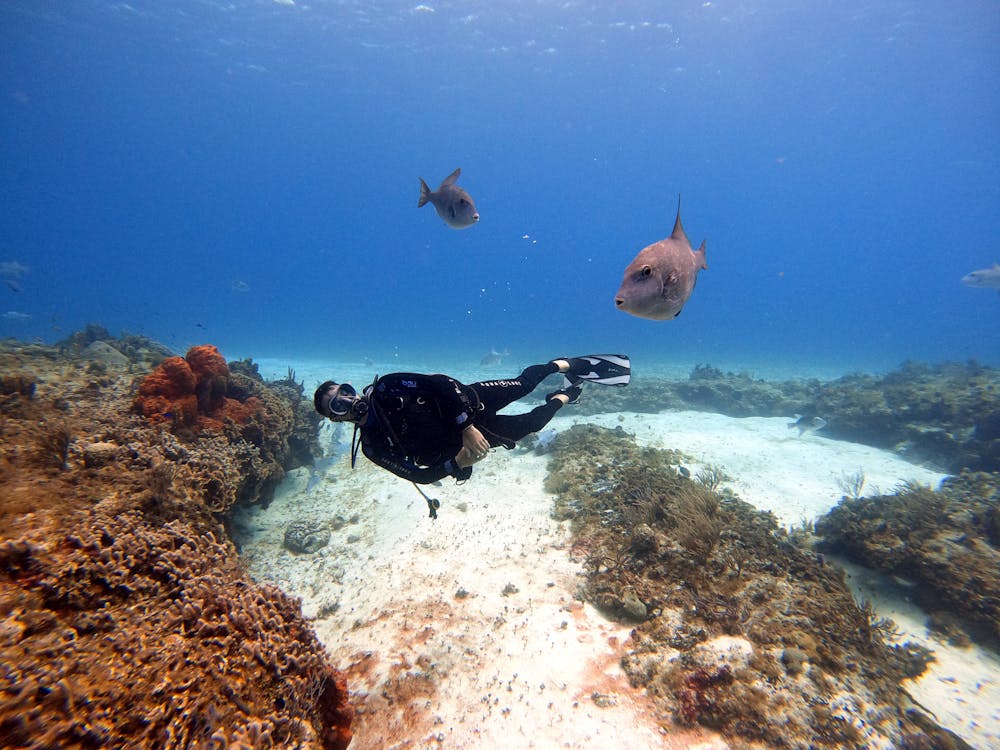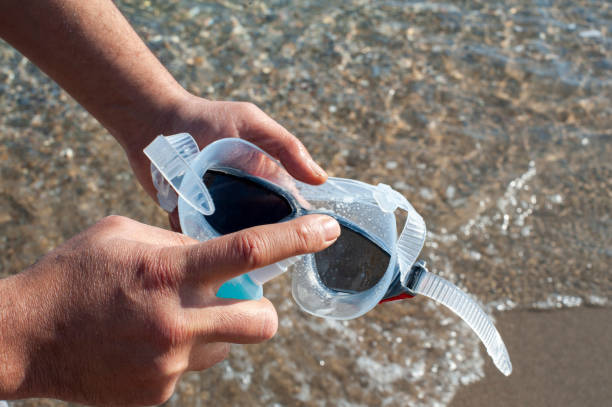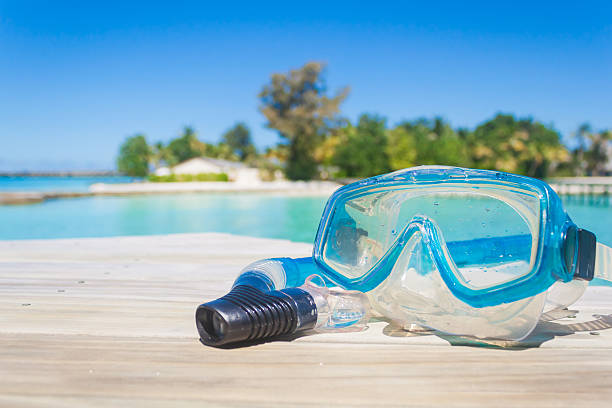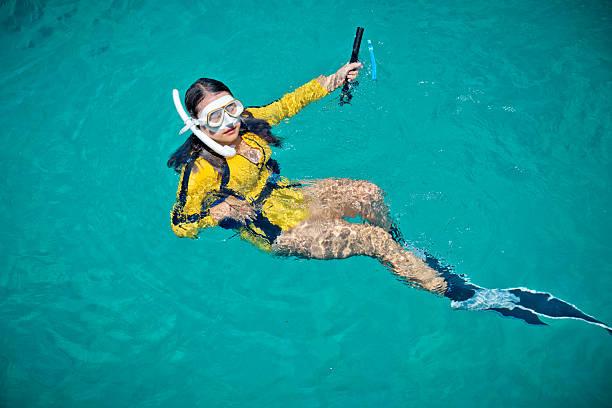L'apnea, ovvero l'attività sportiva che consiste nell'immergersi sott'acqua senza l'uso di autorespiratori, è un'esperienza esaltante che permette ai subacquei di esplorare il mondo sottomarino nella sua forma più pura. Tuttavia, comporta dei rischi intrinseci. Per garantire la sicurezza, è fondamentale rispondere alle domande e alle preoccupazioni più comuni. Qui, raccogliamo le opinioni degli esperti per rispondere alle principali domande sulla sicurezza in apnea.

Quali sono i rischi più comuni associati all'apnea?
L'apnea, pur essendo gratificante, comporta diversi rischi:
- Blackout in acque poco profonde: Ciò accade quando un subacqueo perde conoscenza a causa della mancanza di ossigeno prima di raggiungere la superficie.
- Barotrauma: Lesioni causate da variazioni di pressione, come schiacciamenti delle orecchie e dei seni paranasali.
- edema polmonare: Accumulo di liquidi nei polmoni, spesso dovuto a stress o sforzo eccessivo.
- Annegamento: Il rischio massimo si verifica quando una qualsiasi delle condizioni sopra descritte si verifica sott'acqua.
Gli esperti sottolineano l'importanza di comprendere questi rischi e di seguire una formazione adeguata per attenuarli.
Come si può prevenire un blackout in acque poco profonde?
La perdita di coscienza in acque basse è un problema significativo per l'apnea. Le strategie di prevenzione includono:
- Tecniche di respirazione corrette: Evita l'iperventilazione prima di un'immersione. Piuttosto, pratica respiri lenti e rilassati.
- Sistema di amici: Non immergerti mai da solo. Un compagno può aiutarti in caso di emergenza e contribuire a prevenire incidenti.
- Progressione gradualeAumentare gradualmente la profondità e il tempo di immersione. Non superare i limiti senza un addestramento adeguato.
Quali sono i protocolli di sicurezza essenziali per gli apneisti?
Gli apneisti devono rispettare diversi protocolli di sicurezza:
- Immergersi con un compagno: Avere sempre un compagno addestrato che possa intervenire in caso di emergenza.
- Controlli pre-immersione: Assicurati che tutta l'attrezzatura, come maschere E pinne, sono in buone condizioni.
- Conosci i tuoi limiti: Sii consapevole dei tuoi limiti fisici e psicologici. Non immergerti mai oltre le tue capacità.
- Intervallo di superficie: Lasciare trascorrere un tempo sufficiente tra un'immersione e l'altra per recuperare.
Quanto è importante la forma fisica nell'apnea?
La forma fisica è fondamentale per gli apneisti:
- Salute cardiovascolare:Un cuore e dei polmoni forti migliorano l'efficienza dell'ossigeno e la resistenza.
- Flessibilità:I muscoli flessibili, in particolare nel diaframma e nella gabbia toracica, favoriscono una migliore espansione polmonare.
- Forza:La forza del core e delle gambe è essenziale per muoversi efficacemente sott'acqua.
Si raccomanda di svolgere regolarmente attività fisica, tra cui allenamento cardiovascolare, di forza e di flessibilità.
Cosa fare in caso di blackout sott'acqua?
In caso di blackout, è fondamentale intervenire immediatamente:
- Il ruolo di Buddy:Il compagno deve immergersi, riportare in superficie il subacqueo privo di sensi e sostenergli la testa fuori dall'acqua.
- Respirazione di soccorso: Iniziare la respirazione artificiale se il subacqueo non respira. Somministrare la ventilazione bocca a bocca.
- Servizi di emergenza: Se il subacqueo non riprende conoscenza rapidamente, chiamare assistenza medica.
L'apnea può influire sulla salute a lungo termine?
Sebbene generalmente sicura se praticata correttamente, l'apnea può avere effetti a lungo termine se non affrontata con cautela:
- Barotrauma:Le lesioni da pressione ripetute possono causare problemi cronici.
- Ipossia:La mancanza prolungata di ossigeno può causare danni neurologici.
Gli esperti raccomandano di sottoporsi a controlli sanitari regolari ed evitare di forzare i limiti per garantire la salute a lungo termine.
Quale ruolo gioca la dieta nelle prestazioni e nella sicurezza dell'apnea?
La dieta ha un impatto significativo sulle prestazioni in apnea:
- Idratazione: Rimanere idratati è fondamentale. La disidratazione può compromettere le prestazioni fisiche e aumentare il rischio di ipossia.
- Dieta equilibrata:Una dieta ricca di frutta, verdura, proteine magre e grassi sani favorisce la salute generale e i livelli di energia.
- Evitare pasti pesanti: Prima dell'immersione, evitare pasti pesanti o abbondanti. Sono preferibili spuntini leggeri e facilmente digeribili.
Come si equalizza la pressione in modo efficace?
La compensazione della pressione è fondamentale per prevenire il barotrauma:
- Presto e spesso: Iniziare la compensazione non appena si inizia la discesa e continuare regolarmente.
- Tecniche: Impara diverse tecniche come le manovre di Valsalva, Frenzel e Toynbee. Sperimenta per trovare quella più adatta a te.
- Pratica: Esercitatevi con la compensazione a terra per rafforzare i muscoli coinvolti.
Quali fattori psicologici influiscono sull'apnea?
Lo stato mentale influenza notevolmente l'apnea:
- Relax:Mantenere la calma e il relax preserva l'ossigeno e previene il panico.
- Messa a fuoco: Concentrarsi sulla tecnica e sull'ambiente circostante, riducendo l'ansia e aumentando la sicurezza.
- Meditazione e visualizzazione:Tecniche come la meditazione e la visualizzazione possono aiutare a migliorare la chiarezza mentale e la concentrazione.
È necessaria una formazione formale per l'apnea?
Si raccomanda vivamente una formazione formale:
- Conoscenza:I programmi di formazione coprono conoscenze essenziali su fisiologia, sicurezza e tecniche.
- Sviluppo delle competenze:Gli istruttori forniscono una formazione pratica per sviluppare e perfezionare le competenze.
- Certificazione: L'ottenimento della certificazione dimostra competenza e impegno per la sicurezza.
Conclusione
L'apnea è uno sport meraviglioso che permette di entrare in profonda connessione con il mondo sottomarino. Tuttavia, la sicurezza deve sempre essere una priorità. Comprendendo i rischi, rispettando i protocolli di sicurezza, mantenendo una buona forma fisica e mentale e seguendo un addestramento specifico, i subacquei possono praticare questo sport in sicurezza. Come sempre, il sistema di coppia è imprescindibile e saper reagire in caso di emergenza può fare la differenza tra la vita e la morte. Rimani informato, mantieniti in forma e immergiti in sicurezza.



